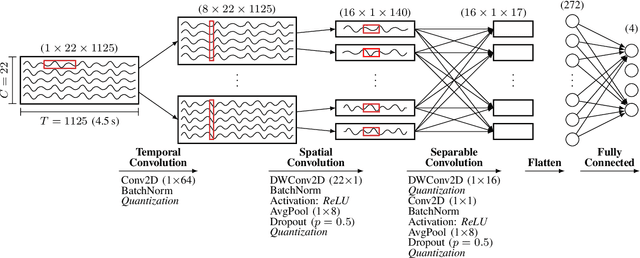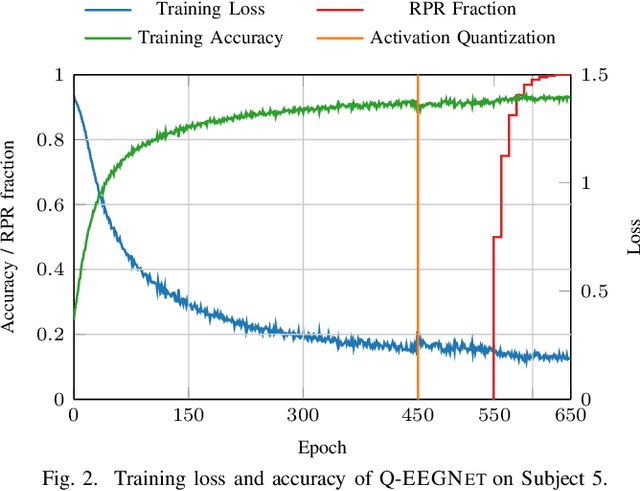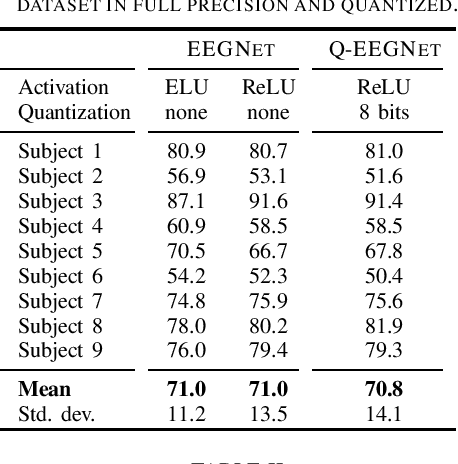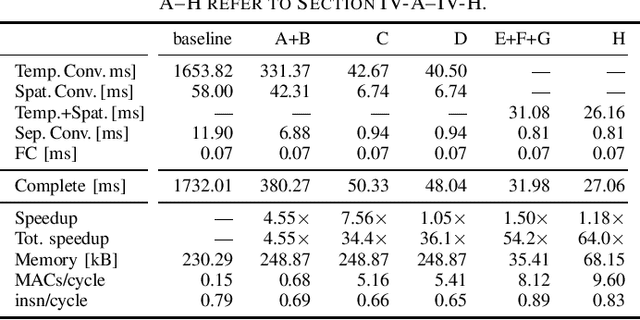Q-EEGNet: an Energy-Efficient 8-bit Quantized Parallel EEGNet Implementation for Edge Motor-Imagery Brain--Machine Interfaces
Paper and Code
Apr 24, 2020



Motor-Imagery Brain-Machine Interfaces (MI-BMIs) promise direct and accessible communication between human brains and machines by analyzing brain activities recorded with Electroencephalography (EEG). Latency, reliability, and privacy constraints make it unsuitable to offload the computation to the cloud. Practical use cases demand a wearable, battery-operated device with a low average power consumption for long-term use. Recently, sophisticated algorithms, in particular deep learning models, have emerged for classifying EEG signals. While reaching outstanding accuracy, these models often exceed the limitations of edge devices due to their memory and computational requirements. In this paper, we demonstrate algorithmic and implementation optimizations for EEGNET, a compact Convolutional Neural Network (CNN) suitable for many BMI paradigms. We quantize weights and activations to 8-bit fixed-point with a negligible accuracy loss of 0.2% on 4-class MI, and present an energy-efficient hardware-aware implementation on the Mr.Wolf parallel ultra-low power (PULP) System-on-Chip (SoC) by utilizing its custom RISC-V ISA extensions and 8-core compute cluster. With our proposed optimization steps, we can obtain an overall speedup of 64x and a reduction of up to 85% in memory footprint with respect to a single-core layer-wise baseline implementation. Our implementation takes only 5.82 ms and consumes 0.627 mJ per inference. With 20.692GMAC/s/W, it is 252x more energy-efficient than an EEGNET implementation on an ARM Cortex-M7 (0.082GMAC/s/W).
 Add to Chrome
Add to Chrome Add to Firefox
Add to Firefox Add to Edge
Add to Edge